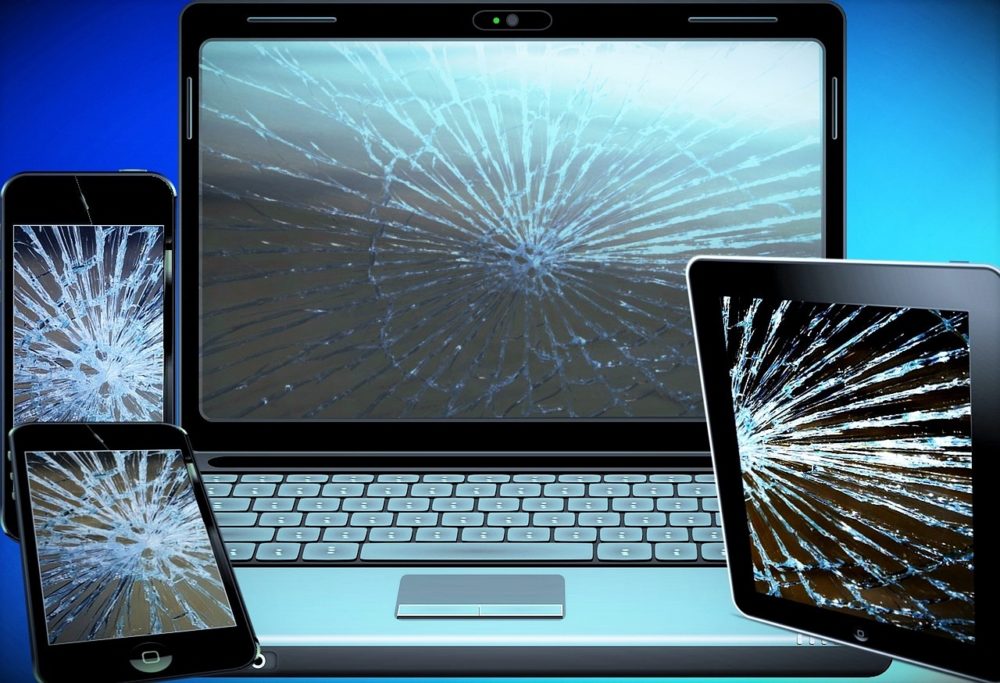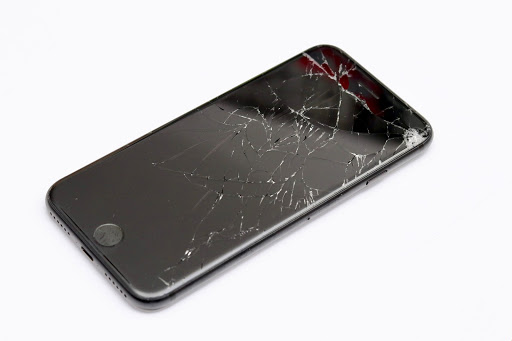This holiday season you should be thinking a lot about e-waste and data security, especially if you’re thinking of regifting a used phone, or making a little cash selling or recycling your device.
During the holidays, electronics are a hot gift item. Consumers love giving them as presents and receiving them as presents. Sales of electronics soar during this time of year.
And there’s often a temptation to avoid the big lines and crowds at the shopping malls and order products online instead. Equally tempting is the idea of looking for deals online, including used devices that are still in good condition but come at a much lower sales price – bargains, in other words.
And more than a few people will be listing their own used devices online, with the expectation of getting the newest models for Christmas.
Before you head down that path, take a moment to think about something else: e-waste and data security.
Every used smartphone and laptop contains your personal data – literally all of the private information you’ve used, from passwords to personal information in your emails. Think of your smartphone or laptop as being akin to a briefcase that includes all your most personal papers. You don’t want to lose that.
And studies indicate that, unfortunately, security may not be at the top of most consumers’ minds when they start thinking about online sales. Recent studies make it clear that if it’s not your major concern, it should be.
Why Is Selling Used Electronics So Risky?
Consumers who do get the latest version of their favorite smartphone or laptop for Christmas should make a note to themselves: when they’re ready to replace their existing device – they should be certain to recycle it. That’s the smartest and most effective way to avoid the problem of cybersecurity. A new global data security study bears that out.
Blancco Technology Group, a global provider of mobile device diagnostics and secure data erasure solutions, conducted a study of mobile devices, hard disk drives and solid state drives purchased from online retailers like Amazon, eBay and Gazelle.
Their conclusion was that these secondhand devices contained a significant amount of residual data – enough data, in fact, that Blancco could discern the original users’ identities.
In other words, selling used electronics without getting your data removed first is a major risk. The study examined 122 pieces of secondhand equipment purchased in the U.S., Germany and the U.K., and found that 48 percent of the hard disk drives and solid state drives contained thousands of leftover emails, call logs, texts, photos and videos. That data got retrieved from 35 percent of the mobile devices.
The researchers found there had been an attempt to delete that data, but in most instances, those deletions were unsuccessful since they used unreliable methods. For a lot of people giving up their smartphone, they assume unless someone knows their password, they can’t get onto the device, or that they can simply delete their emails or other information and it’s gone for good. Not so fast.
If only it were that simple.
Instead, those ineffective means of “deleting” data leaves sensitive information fully exposed – and potentially accessible to cybercriminals.
Paul Henry, the IT Security Consultant for Blancco Technology Group, noted that, “failing to wipe information properly can have serious consequences,” since far too many people use common deletion methods that aren’t effective.
Their study indicated that residual data left on second-hand mobile devices was often significant enough to find not only the previous owner’s emails with their contact information, but also business media files containing a company’s intellectual property.
Their bottom line was that without effective data erasure methods, the security risks soar for anyone who attempts to sell their used device online. Manually deleting data or logging out of a mobile device app doesn’t erase all the data from it. That data can still be recovered – and all too often, it is.
And the other problem that this study noted is that unless that message gets out to people, too many consumers will be selling their devices online with a false sense of security. As the research uncovered, data is actually quite difficult to delete, and it can easily be found by criminals who know what they’re doing.
What Often Happens When People Discard their Old Devices?

Far too often when a consumer or a business disposes of an electronic device, there’s a failure of awareness that action has on the environment at large.
Used electronics, or e-waste, contain chemicals like mercury and lead, which can contaminate the soil and water around the landfills they get dumped in. Environmentalists have been sounding the alarm about the potential health risks from throwing out e-waste; and the United Nations has joined them in calling for a far more concerted push to promote and encourage the recycling of e-waste.
The UN has even issued a report titled, “The Global E-Waste Monitor,” which warns that globally, about 45 million tons of electronics got disposed of in 2016 – although it’s been estimated that just 20% was recycled in some shape or form. The remaining 80% ended up in landfills, which creates significant environmental risks.
That’s why in the U.S. more than two dozen states have laws governing the disposal of e-waste. In some instances, these laws prohibit e-waste from going into landfills, mandating that e-waste gets recycled.
Recycling takes these devices out of landfills.
By taking your devices to a proven recycling firm like Great Lakes Electronics Corporation, you can help reduce the impact of e-waste on the environment. Great Lakes Electronics can perform environmentally friendly recycling of all electronic products, and disassemble these items into component parts, so those parts that still have value can be sold for reuse.
The other things some consumers do with their used devices is sell them online, figuring there’s always a market out there for people who want a bargain. Indeed there are – although all too often, the people looking for those bargains are cybercriminals and identity thieves.
And if you do sell a device online, did you just give away your personal data?
Information stored on IT devices can, of course, lead to the loss of sensitive personal and business information if it gets recovered by cyber thieves. The reputation of major businesses can be badly damaged if that happens.
The National Cybersecurity and Communications Integration Center, which works to reduce the risk of cybersecurity, has warned consumers and businesses about these risks and even released security tips for the proper disposal of electronic devices.
Their E-Waste and Data Security Tips Include:
- Always backing up your data
- Having any data scrubbed from any device that stores data
- Overwriting your data
Can Recycling Promote Data Security?

The other key reason to promote recycling is that it’s an effective way of promoting your personal security.
At Great Lakes Electronics Corporation, for example, electronic recycling is their specialty – data security is their priority. Once you take a used electronics device to Great Lakes Electronics Corporation, all personal information stored on your devices and hard drives will get eliminated – which also eliminates any concerns you may have about identity theft.
With their in-house data elimination processes, Great Lakes Electronics Corporation can ensure complete data destruction of all drives. That includes multiple levels of data sanitization that provides the secure destruction of personal, sensitive, proprietary, or classified information.
When they’re done, Great Lakes Electronics Corporation will issue Certificates of Destruction and Certificates of Data Deletion upon the customer’s request. That signifies that all data devices brought in for in-house data elimination were handled in accordance with federal standards.
These days, most of the conversations involving e-waste focus on the problems associated with disposing of them in landfills, which is an important topic.
But there also needs to be a healthy and vigorous discussion about the data security issues as well. All data information must be protected and fully secured.
Conclusion
E-waste and data security can present a serious threat to individuals and businesses. Data erasure is the strongest way to fight back, but most individuals and companies have no idea how to go about it.
The solution is to turn those devices over to an experienced firm like Great Lakes Electronics Corporation, which has years of experience performing environmentally friendly recycling of electronic products.
The team at Great Lakes will disassemble these items into component parts, and the ones that still have value can be sold for reuse. Other parts are used for metal recovery. Everything within your devices gets recycled.
More importantly, they’re your data security experts. By recycling with Great Lakes Electronics, you won’t have to worry about the data you left behind on those hard drives.
To learn more, contact Great Lakes Electronics at 888-392-7831 today.

